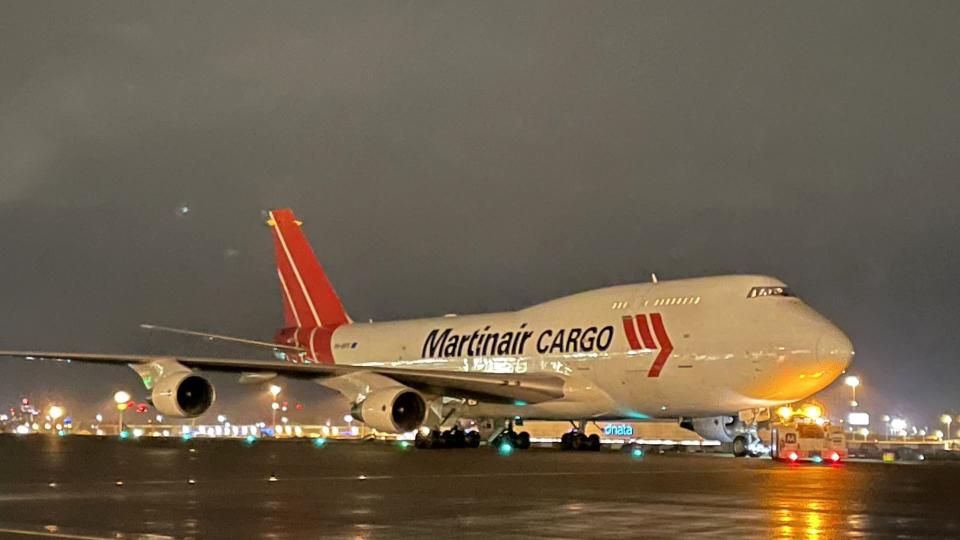Air France-KLM Shifts Cargo Jets from Latin America to Hong Kong
In a strategic maneuver to capitalize on burgeoning demand for air freight in the e-commerce sector, the Air France-KLM Group has announced the redeployment of its Boeing 747-400 freighters from Latin America to Hong Kong. This shift is aimed at enhancing service capacity on critical trade routes between Northern Europe and Asia, reflective of changing patterns in global logistics and consumer behavior.
A New Chapter for Martinair Cargo
The Air France-KLM Group is set to launch a new service connecting Amsterdam and Hong Kong on September 19, 2023, operated by its subsidiary Martinair Cargo. This route marks a significant development as it reestablishes regular operations to Hong Kong for the first time in nearly a decade. Notably, this service will include a stopover in Dubai, a vital hub for international trade that facilitates efficient connections between various markets.
As part of this transition, Martinair will initially operate flights three times per week, with plans to ramp up to four weekly flights starting with the winter schedule on October 27. The Boeing 747-400 freighters, known for their substantial cargo capacity of up to 120 tons, are well-suited for the growing demands of the Asian market, particularly driven by the e-commerce sector.
Strategic Route Cuts in Latin America
To facilitate this shift, Air France-KLM will suspend several of its freighter routes to Latin America, which includes key destinations such as Campinas, Brazil; Buenos Aires, Argentina; Santiago, Chile; Lima, Peru; Quito, Ecuador; and Guatemala City. The airline's spokesperson, Gerard Roelfzema, noted that the only route that would remain operational is the three-times-weekly freighter service to Bogotá, Colombia, connecting through Miami.
This recalibration indicates a strategic pivot aimed at maximizing the efficiency and profitability of the airline’s cargo operations, reflecting the increasing importance of the Asia-Pacific region in the global air freight landscape.
E-Commerce Demand Fuels Air Cargo Growth
The decision to increase cargo capacity to Hong Kong is largely driven by the remarkable growth in the e-commerce sector. Adriaan den Heijer, executive vice president of cargo at Air France-KLM, acknowledged this trend in a recent press release, emphasizing that the e-commerce segment is experiencing steady growth and necessitating more efficient and reliable air freight solutions. The introduction of Martinair’s new Boeing 747 freighter service is viewed as a pivotal enhancement to their existing capacity, which is primarily reliant on lower deck space in widebody passenger aircraft.
According to recent statistics, global air cargo demand has surged by 12.5% year-to-date compared to the same period in 2022, underscoring the critical role played by online retail platforms. In particular, operations based in China account for over 11,000 tons of goods transported by air each day, showcasing the immense volume of parcels that air freight providers must cater to. Boeing’s 20-year commercial outlook predicts that this ongoing demand for air freight will necessitate significant adjustments and enhancements in capacity to meet the needs of a rapidly evolving market.
Capacity Constraints Highlighted
Logistics analysts have noted that the capacity of widebody freighters remains constrained on significant trade routes originating from China. As e-commerce providers aggressively book available cargo space, organizations like Taiwanese forwarder Dimerco report that approximately 70% of air exports from Hong Kong and half of the volumes flown from Shanghai consist of small parcels. This underscores the necessity for carriers like Air France-KLM to not only increase their freighter services but also improve their logistics capabilities to remain competitive.
Conclusion
The strategic decision by Air France-KLM to shift its cargo operations from Latin America to Hong Kong symbolizes a momentous shift in the landscape of global air freight. The introduction of dedicated freighter services for e-commerce highlights the airline's commitment to adapting to market demands and solidifying its position within the booming Asian market. As e-commerce continues to grow and redefine consumer behavior, companies in the logistics and aviation sectors will need to remain agile, adjusting their operations to meet evolving market needs and ensuring that they can effectively navigate the complexities of modern trade.
